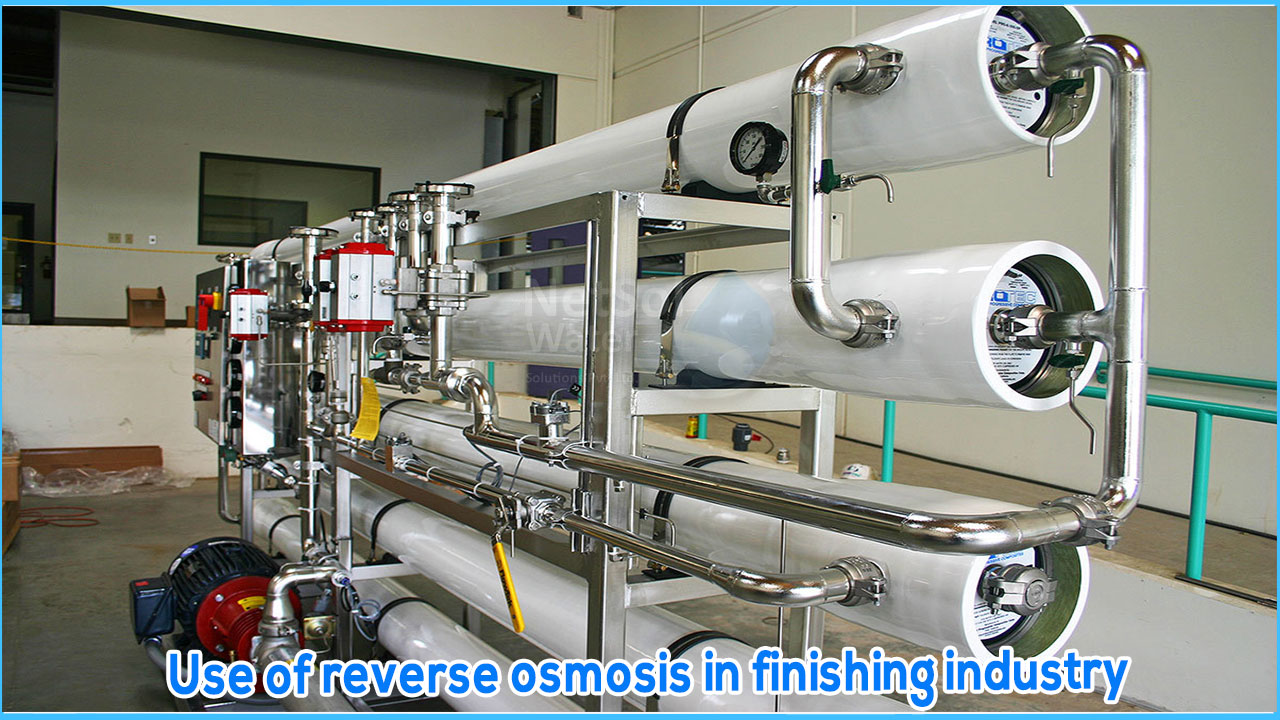WHAT IS REVERSE OSMOSIS?
Raw water is filtered through a system that removes pollutants, and the process is commonly referred to as RO. Without the use of chemicals, resins, or ion exchange beds, the system uses cutting-edge membranes to remove contaminants. Raw water, often known as town water, is water that has not been treated or stripped of any minerals or components. Water enters the RO system by a break tank or a mains feed. The quality of your incoming water will vary depending on your geographic location.
Unlike other filtering systems that use low-pressure water, RO requires a higher-pressure pump to push water through the membranes. This is owing to the fact that it can filter out more pollutants than other filtration methods.By lowering micro-Siemens and total dissolved solids, the RO process enhances the purity and quality of incoming water (TDS).
WHAT SECTORS CAN RO BE USED IN?
Water is utilised to clean other machinery, process parts, generate consumables, wash out packing before products are placed, and more in most manufacturing applications.
RO CAN BE USED IN THE FOLLOWING SECTORS:
- 1. Automotive
- 2. Food & Beverage
- 3. Aerospace
- 4. Pharmaceutical
- 5. Agriculture
- 6. Fishing
- 7. Industrial
RO IN THE FINISHING INDUSTRY
Depending on the business, when it comes to the amount of water consumed, the finishing stage of production might be one of the most demanding. It is unavoidable that a large amount of water will be used to ensure that the final product meets the highest standards and is consistent with prior colours.
The finishing process might be chemical, mechanical, or smart in nature. Certain materials, such as oils and chemicals, will wind up in the wastewater as a result of this. Metals and paint residue may also be present.In some industries, such as the automotive industry, the paint and finishing process alone might consume more water than all other steps combined. Poor quality water going through a system not only affects the environment but it can also affect the quality of the finished product.
WHAT ARE THE BENEFITS OF USING RO?
There are a number of reasons why RO is one of the best water filtering systems for industrial processes. The following are some of the advantages of implementing RO:
- 1. Maintenance of the environment,
- 2. health, and safety
Reverse osmosis is one of the most environmentally friendly methods for treating industrial wastewater. It catches contaminants and allows you to properly dispose of them.Because RO does not require the use of dangerous chemicals, waste water is less hazardous.Chemicals are required in alternative water filtration procedures. As the price of membrane elements used in RO decreases, the price of acid and caustic solutions continues to climb. Electricity is the principal cost of RO, current water filtering systems use less energy, therefore operational costs are modest.
The health and safety benefits of using RO are enormous because no toxic chemicals are required. It also reduces the danger of chemicals being stored on site, making the workplace safer. RO is a self-contained, self-maintaining unit. It self-cleans and only requires periodic monitoring from the operator.Membranes can last up to 2-3 years depending on a number of parameters, including the quality and quantity of water put into the RO system. Reverse osmosis has a short downtime since membranes can be replaced in a matter of hours.




